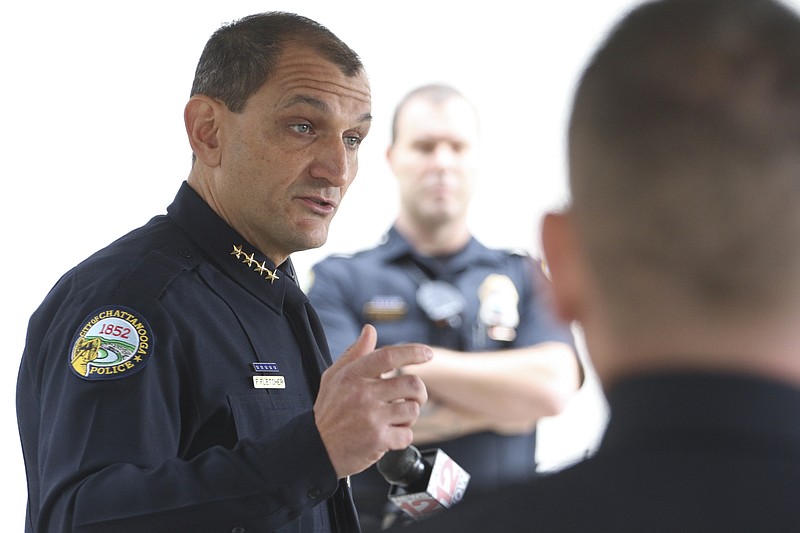Last week, Mother Jones reported that the Trump administration "is quickly amassing the means" to make good on Trump's promise to deport millions of people from the United States.
One of those tools is a federal program that enlists state and local police and jail officials to identify people they believe may be undocumented immigrants.
The program is known as 287(g) for the section of the Immigration and Nationality Act of 1996 that created it. It established "task force" agreements that allow Immigration and Customs Enforcement (ICE) to deputize local and state law enforcement officers as immigration agents. The program would give police authority to stop, interrogate and arrest anyone they believe to be unauthorized immigrants. It also gives deputized jail administrators access to immigration databases so they may refer undocumented immigrants to ICE for possible deportation.

The Obama administration scaled down the program, in part due to criticism that it encouraged racial and ethnic profiling, created financial incentives to detain immigrants, and undermined relations between the police and immigrant communities. Now Trump is preparing to bring it back, according to Mother Jones and other news reports.
On Feb. 21, Homeland Security Secretary John Kelly, calling the program a "force multiplier," issued memos to senior officials in his department outlining instructions for enforcing the president's Jan. 25 executive order, which called for an aggressive effort to deport undocumented immigrants regardless of whether they had committed serious crimes.
"This is the deportation machine," says Daniel Stageman, a researcher at the John Jay College of Criminal Justice who studies immigration and criminal justice. "If Trump is going to meet the kinds of numbers he announced during his campaign, this is how it will happen."
So far at least, it is fortunately not a plan for Chattanooga.
Chattanooga Police Chief Fred Fletcher on Thursday told a crowd of about 300 that he couldn't speak for the national climate or policies coming out of the White House, but his department will not be changing and he is not on a mission to deport immigrants who came to this country illegally.
"Nothing has changed for the Chattanooga Police Department," he told adults at East Side Elementary School as children of those adults ate cupcakes and played video games. "We have never asked the immigration status of anybody we have ever encountered. And we have no plans to change that practice."
After the meeting, sponsored by La Paz Chattanooga, Fletcher said the issue of immigration is too complex for sweeping declarations. If U.S. Immigration and Customs Enforcement agents issue a detainer to deport somebody, local police must honor the demand. And if a judge issues a warrant, they have to honor that, too, he said.
But as a general rule, the police department is not trying to hunt down those who are undocumented.
Chattanooga's immigrant population - like that of the rest of the country - is worried. They have come here to work and seek better lives. They worry that being stopped for a minor traffic violation may result in a deportation.
Fletcher suggested that if they came here illegally they should ride the bus or use a bicycle or get a ride from a friend with a license. If they do drive and are caught by Chattanooga police, he said, they would get a ticket for driving without a license, like anyone else.
Law enforcement and mayors' associations have long been critical of programs like 287(g), claiming that they create a rift between communities and the police, making it more difficult to focus on serious offenses.
"Whenever local police get involved in immigration enforcement, that causes a great deal of reluctance on the part of undocumented immigrants and other immigrants to report crimes and victimization to the police," Darrel Stephens, the executive director of the Major Cities Chiefs Association, told Mother Jones. "Community trust is a really big deal to local police. They cannot function effectively if they don't have as good a relationship as they can get."
These are social programs, you say? Not a city's job?
Sure they are. Our police have more important crimes to stop (and solve) than nabbing working immigrants whose only crime is being undocumented.
Anything is a city's job if it saves taxpayers some of the cost of jailing people.
And anything is a city's job if it betters the city's future by building a population of caring and hard-working people - no matter what their color, nationality or religion.
